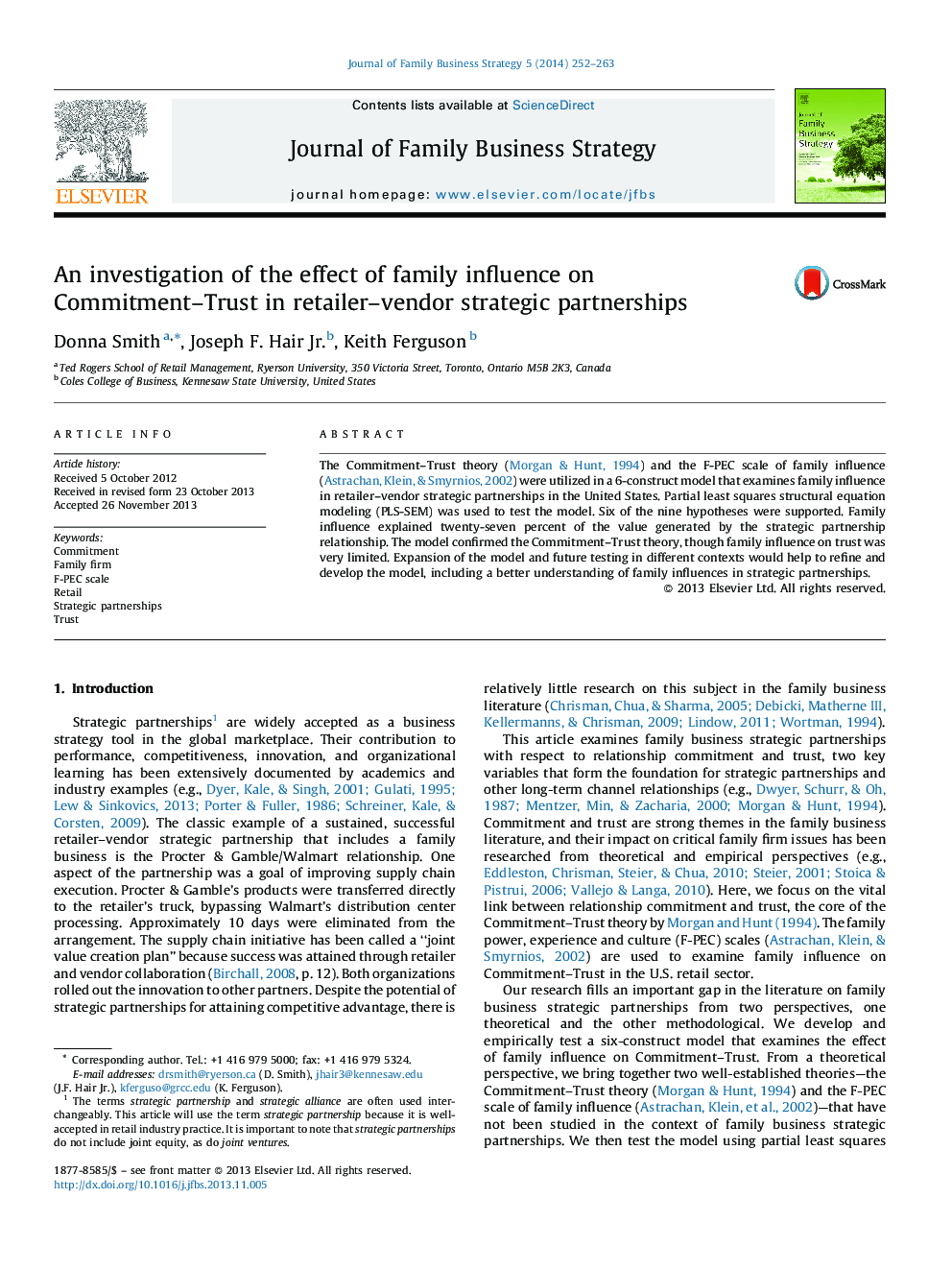| Article ID | Journal | Published Year | Pages | File Type |
|---|---|---|---|---|
| 1020160 | Journal of Family Business Strategy | 2014 | 12 Pages |
•A 6-construct model is developed and empirically tested.•Family influence explains 27% of the value generated by the strategic partnership.•The research confirms the Commitment–Trust theory.•A long-term dimension is added to the family power scale.•Relationship commitment fully mediates trust and relationship value.
The Commitment–Trust theory (Morgan & Hunt, 1994) and the F-PEC scale of family influence (Astrachan, Klein, & Smyrnios, 2002) were utilized in a 6-construct model that examines family influence in retailer–vendor strategic partnerships in the United States. Partial least squares structural equation modeling (PLS-SEM) was used to test the model. Six of the nine hypotheses were supported. Family influence explained twenty-seven percent of the value generated by the strategic partnership relationship. The model confirmed the Commitment–Trust theory, though family influence on trust was very limited. Expansion of the model and future testing in different contexts would help to refine and develop the model, including a better understanding of family influences in strategic partnerships.
